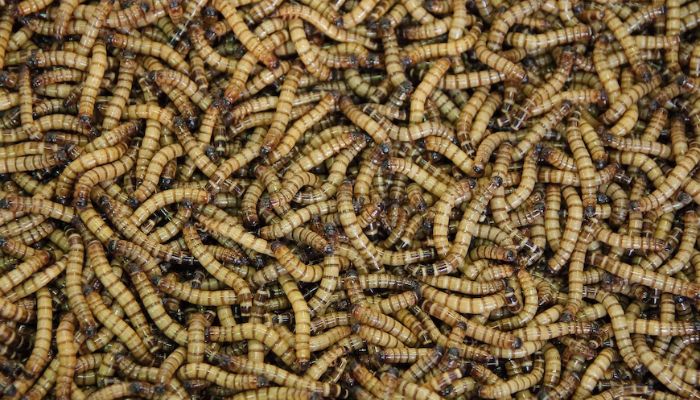Would you have burgers made of insect meat?
Mealworms, the larvae of creepy crawlers, may replace meat in the world's diets to reduce hunger
January 15, 2023

According to recent research, beetle burgers may soon contribute to global food security.
Mealworms, the larvae of creepy crawlers, may replace meat in the world's diets to reduce hunger. In comparison to traditional farming, the procedure requires less land and water and produces less carbon dioxide.
The French biotech company Ynsect is preparing to establish a global network of insect farms, including nurseries and slaughterhouses, to make this a reality. A test facility has already been established at Dole in the French Bourgogne-Franche-Comte area.
The entire bug-based operation is housed under one roof, in contrast to the livestock industry where raising is normally done separately.
“We are in full control of the chain of production. That gives us strength in terms of quality, security and safety,” said Benjamin Armenjon, general manager of Ynsect, according to a statement from SWNS.
Stacks of red trays are moved by automated conveyor belts and robot arms in every direction. Tenebrio molitor beetle larvae, for example, are high in fibre and lipids and contain more than 50% protein.
At a fraction of the environmental impact of conventional farming, they can be turned into protein powders, smoothies, burgers, cereal bars, and even cooking oils. Ynsect consumes 98% less land and generates 40 times less carbon than beef for every kilogramme of protein. Moreover, it requires 40 times less water than the production of pork.
Wheat processing byproducts are fed to the mealworms. The bugs are said to taste just like real meat when mixed with sugar. They might also take the place of chicken fingers or sausages.
At its Paris headquarters, the company is testing the ideal circumstances for mass production, including food, temperature, and humidity.
Researchers studying Ynsects are also looking at the nutritional value and the possibility of employing other insects. Later this year, a larger facility will be opening near Amiens. It will produce 200,000 tonnes of insect-based foods annually, making it the largest insect farm in the entire world.
The ambitious endeavour will reduce expenses so that it can compete with businesses that produce soy and vegetarian burgers.
By 2050, it is predicted that there will be about 10 billion people on Earth. Demand for animal-based, resource-intensive products is rising. But more solutions are desperately needed in areas with food insecurity.
Future diet and nutrition will likely be significantly impacted by climate change, according to researchers. Due to the rising price of animal protein and the resulting environmental problems, eating insects has become a hot topic.
Beetles are palatable, nourishing, and significantly more sustainable but people in many nations find it repulsive to eat them. Mealworms that have been cooked and sold by some producers as crunchy, salty treats have not gained much popularity.
The business claims that it plans to create 15 similar facilities by the year 2030, including the biggest insect farm in the world in Amiens, France.









